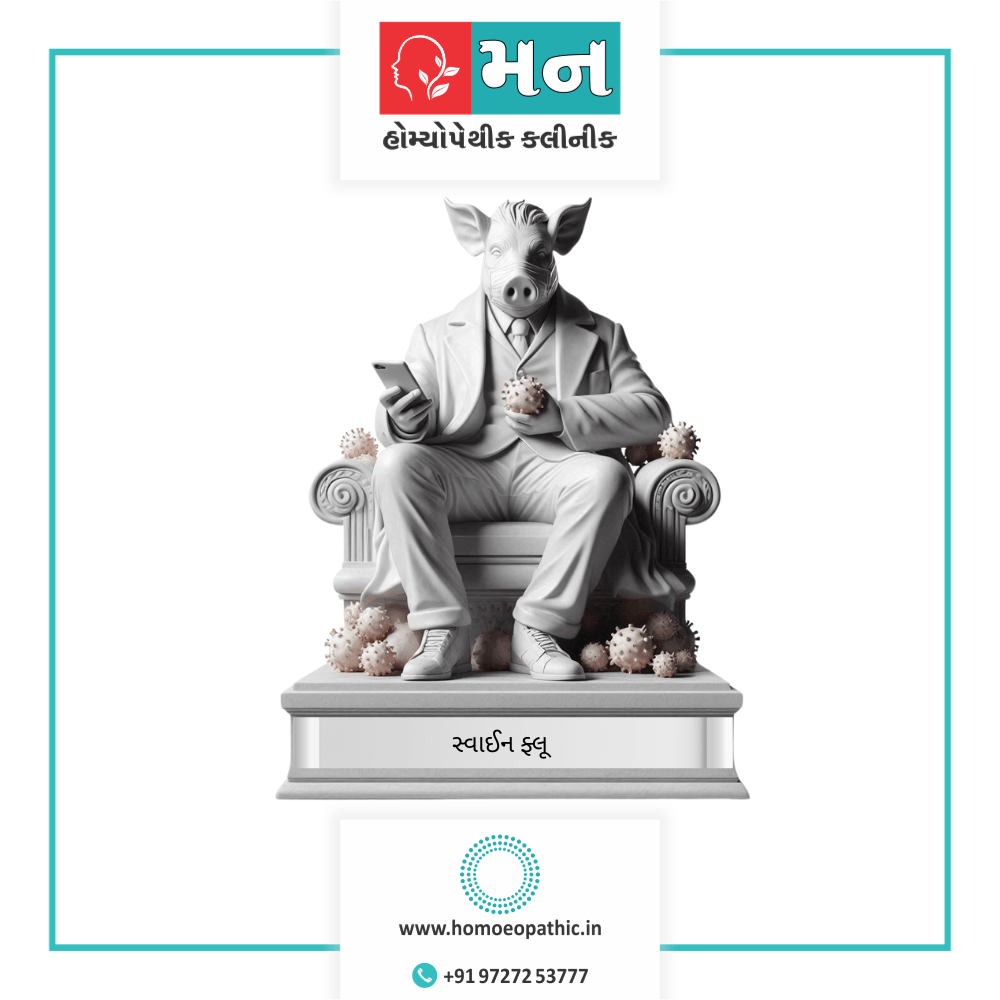સ્વાઈન ફ્લૂ
આ લેખમાં સ્વાઈન ફ્લૂ વિશે સંપૂર્ણ માહિતી આપવામાં આવી છે. તેના લક્ષણો, ઉપચાર, અટકાયત અને અન્ય મહત્વપૂર્ણ પાસાઓને વિગતવાર સમજાવવામાં આવ્યા છે. સ્વાઈન ફ્લૂથી બચવા માટે જરૂરી સાવચેતીઓ અને સરકારી માર્ગદર્શિકાનું પણ અહીં સમાવેશ કરવામાં આવ્યો છે.
સ્વાઈન ફ્લૂ, એક ચેપી શ્વસન રોગ, વ્યક્તિઓ અને સમુદાયો માટે નોંધપાત્ર આરોગ્ય જોખમ રજૂ કરે છે. જ્યારે પરંપરાગત દવાઓ ઉપલબ્ધ છે, હોમિયોપેથી સ્વાઈન ફ્લૂના લક્ષણોને સંબોધવા અને શરીરની કુદરતી હીલિંગ પદ્ધતિઓને ઉત્તેજીત કરવા માટે એક સલામત અને સૌમ્ય વિકલ્પ પ્રદાન કરે છે. આ લેખ સ્વાઈન ફ્લૂ માટે હોમિયોપેથિક સારવારના સિદ્ધાંતો, લાભો અને સામાન્ય રીતે ઉપયોગમાં લેવાતી દવાઓની શોધ કરે છે.

